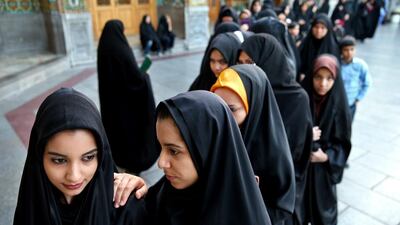The votes are still being counted in Iran’s election for parliament and the Assembly of Experts, a committee of 88 clerics that have the power to monitor the country’s supreme leader, Ayatollah Ali Khamenei, and choose his successor. Early polling indicates that reformist politicians are showing strong returns. If the polling data translate into a win for the reformists, the election will give moderate president Hassan Rouhani a much-needed boost in support to deliver domestic reforms.
These elections come at a time of great change and possibility in Iran. The country has started the process of coming in from the cold, by accepting a deal with the international community over its nuclear programme. Economic sanctions have been lifted and Iran is preparing to sell oil and other commodities on the open market.
We hope that the elections will continue to bring positive reform to the country and perpetuate a constructive pivot towards the international community. But we are under no illusions as to the dangerous meddling that Tehran has been doing throughout the Arab world. Iran’s long arm can easily be detected in assisting the regime of Bashar Al Assad in Syria and supporting Houthi rebels in Yemen. Its geopolitical influence has been corrosive and destabilising.
Speaking at the third Russian-Arab Cooperation Forum in Moscow on Friday, Sheikh Abdullah bin Zayed, Minister for Foreign Affairs and International Cooperation, conveyed the prevailing sentiment in the Arab world over Iran’s overextended and dangerous weight in the region.
“In today’s meeting, Arab countries made sure to express their concern over the fact that Iran continues to interfere in the internal affairs of Arab states through supporting terrorist organisations, spreading extremism and disrespecting the sovereignty of other states,” Sheikh Abdullah said.
Tehran has charted an unsustainable course in the Arab world and given that 60 per cent of Iran’s 79 million people are under the age of 30, the responsibility to chart a more constructive path forward remains in the hands of the young. Whatever the results of the election, those young people must call for more reforms, not just at home but also in the country’s foreign policy.

